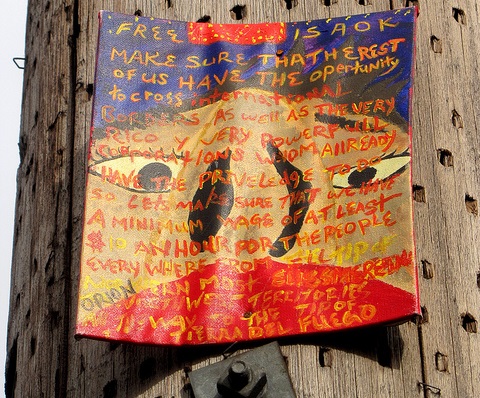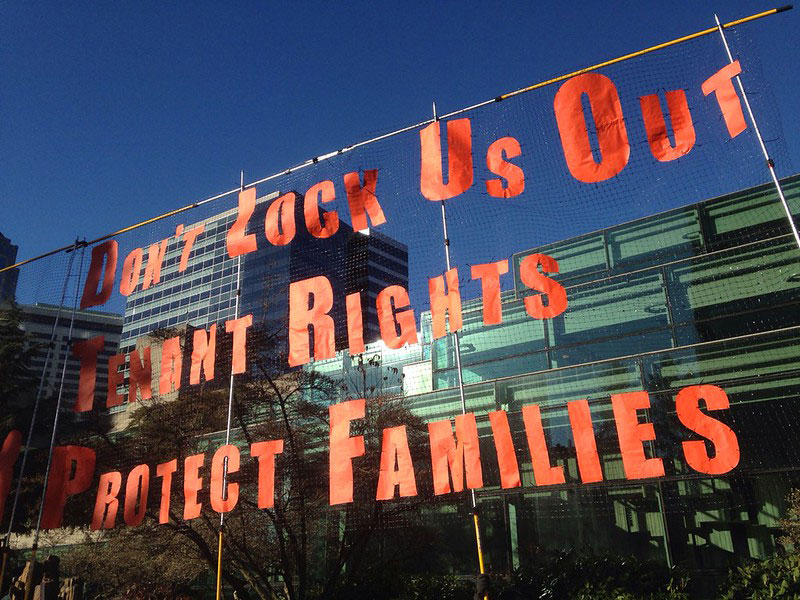
April 8, 2015; Los Angeles Times
As the momentum behind the effort to transform the minimum wage into a “living” wage grows, nonprofit organizations are struggling with the impact of increased labor costs. In city halls, state houses, and the United States Congress, there is increasing consensus that the minimum wage should be raised; the debate has shifted to how large the increase should be and how long should the phase-in period must be before that new level is reached.
Many nonprofit organizations are finding that they are arguing with themselves about the merits of an increase. As advocates for low-income households, they support increasing the minimum wage to a level where it will meet basic human needs. As employers of many minimum-wage workers that have limited ability to pass on increased costs to their customers, nonprofits worry about the economic toll that increasing salaries will have on their fiscal health.
As the Los Angeles City Council considers increasing the minimum wage to $13.25 per hour, Mark Loranger, president and CEO of Chrysalis, an agency whose services provide a pathway to self-sufficiency for homeless and low-income individuals, says his group might not be able to provide as many jobs to those at the bottom of the economic ladder. He estimates that the proposed increase would cost his organization more than $1,000,000.
Mike Walsh of Adelphoi, a nonprofit in Pennsylvania that helps at-risk youth, says, “Mandating a $12 minimum wage, under consideration in Philadelphia, would cost too much. It would present an economic hardship, about another $400,000, to get to 12.”
Sign up for our free newsletters
Subscribe to NPQ's newsletters to have our top stories delivered directly to your inbox.
By signing up, you agree to our privacy policy and terms of use, and to receive messages from NPQ and our partners.
The increase in Maryland’s minimum wage to $10.10/hr., scheduled to take place in 2018, is hitting some larger nonprofits hard. That’s the message from Courtney Thomas, the executive director of the Human Resources and Development Commission, as reported in the Cumberland Times-News:
“‘We’re facing some pretty tough times…we’re pretty lean,’ Thomas said. A number of positions have been consolidated to save money. The minimum wage will drive salary costs up $30,000 in 2016 and $75,000 in 2018, which Thomas called an ‘unfunded mandate.’”
Recognizing this dilemma, advocates for the nonprofit sector see a solution in governments and donors increasing their level of support and have begun to advocate for increased funding for nonprofit organizations. Independent Sector has actively supported an increased minimum wage and has urged nonprofit organizations to ensure that all employees are paid adequately but has recognized that there is a cost to be met.
“We also recognize that for some organizations, the choice between providing care to vulnerable communities and raising wages is very real and difficult,” said IS President and CEO Diana Aviv. “To obviate such choices, we encourage donors to increase their gifts and governments to increase their reimbursement rates.”
“Minimum wage increases help the working poor,” said Ashley McCumber, board chair of the California Association of Nonprofits and CEO of Meals on Wheels of San Francisco. “Nonprofit leaders are committed to helping the working poor through minimum wage increases as well as through services.”
“Opponents of minimum wage increases often try to use nonprofits as a ‘front man,’” added CalNonprofits’ CEO, Jan Masaoka. “In fact, our members not only support increased minimum wages, but are eager to work with city and state officials on both legislation and implementation.”—Marty Levine












